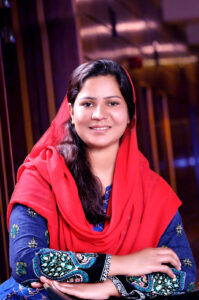Posted to Sister Zeph’s Journal By Sister Zeph On July 13, 2013
An elderly lady, aged eighty-five, resides in my neighborhood. She is the mother of three sons and one daughter, and she boasts fifteen grandsons and fourteen granddaughters. Her health is fragile, impeding her ability to walk with ease. One day, I observed her standing in front of my door, sipping on a juice that someone had kindly given her. She lives just three doors away from my home. At that moment, she had just returned from her daily duties and was determined to savor the juice privately, without having to share it with her grandchildren. Perhaps, today, she simply wanted to enjoy it for herself. Her eyeglasses, broken but resourcefully repaired with a makeshift rope, tell a story of resilience. She diligently works as a cleaner, employed both in a household and a factory.
As I made my way to my office one day, while crossing the road, I encountered her struggling to navigate the street. Moved by her predicament, I offered her my hand, and together, we safely crossed to the other side. I couldn’t help but reflect on the arduous work she undertakes at her age. This is the time when she should be enjoying some well-deserved rest, yet circumstances dictate otherwise. She persists because she must.
One of her sons, Saleem, has five daughters who are now growing into young women, eagerly anticipating the day they will marry. Nearly every week, potential suitors visit their home to evaluate the daughters as prospective wives for their sons. It is a weekly cycle of preparation, presentation, and eventual rejection due to their impoverished circumstances. The rejection comes primarily because they cannot afford the dowries expected in these marriages. Consequently, the elderly lady works tirelessly to support her son, enabling him to accumulate the necessary funds for dowries so that her daughters may one day marry.
This recurring struggle involves collecting money, sacrificing personal desires, and even borrowing funds that will be repaid over the course of several years. Sadly, even with these substantial efforts, there is no guarantee of the daughters’ happiness after marriage. This narrative is tragically common in our impoverished society. From an early age, girls are conditioned to believe that their ultimate destiny is marriage. They are taught domestic skills such as cooking, cleaning, and sewing, all while awaiting their prince charming who will bring eternal happiness. For some, the wait stretches into years, hair graying with anticipation. Poverty often leads to numerous suitors rejecting them. Their mothers dedicate their lives to preparing dowries, only to find that the demands escalate with time.
The immense love and desire for their daughters’ happiness is palpable in these parents’ efforts. Yet, there exists a more straightforward path—a way to ensure the well-being of both the daughters and their parents. Dowry is one of the key reasons why families prefer sons over daughters, as sons are seen as future earners while daughters are perceived as financial burdens due to dowry obligations. However, if parents opt for education, if they equip their daughters with skills and turn them into professionals, the burdensome dowry struggle can be avoided. Education ensures daughters are self-reliant, capable of earning, and acquiring what they need. It grants parents the freedom to enjoy their lives without resorting to unethical means for dowry money, reduces the tragic instances of suicides over dowry disputes, and lifts the burden daughters often place on society. An educated daughter becomes a source of strength and confidence.
Dowry, an unjust practice, should not be demanded. Although laws prohibit it, cultural norms perpetuate this tradition. Cultural change is a slow process, but it is education and awareness that can facilitate this transformation. We must educate parents about the significance of their daughters’ education. While the Western world has embraced this understanding, we must disseminate this message extensively in the third world.
For fifteen years, through my free school, I have been actively engaged in this endeavor. I have educated five hundred girls, guiding them toward professionalism and imparting valuable skills that empower them to earn independently. All of this was accomplished without external support or resources. Today, with the assistance of a few friends offering moral and financial support, I continue this mission with renewed determination. Education is the ultimate solution to our myriad challenges. Girls are not burdens; they constitute half of our world. Our world depends on them just as they depend on it.

